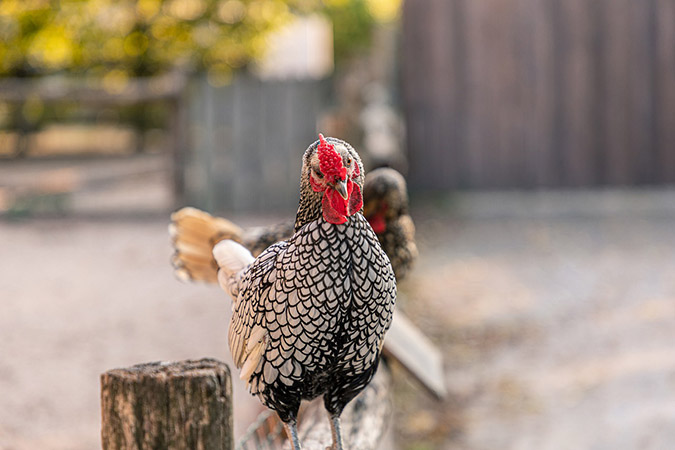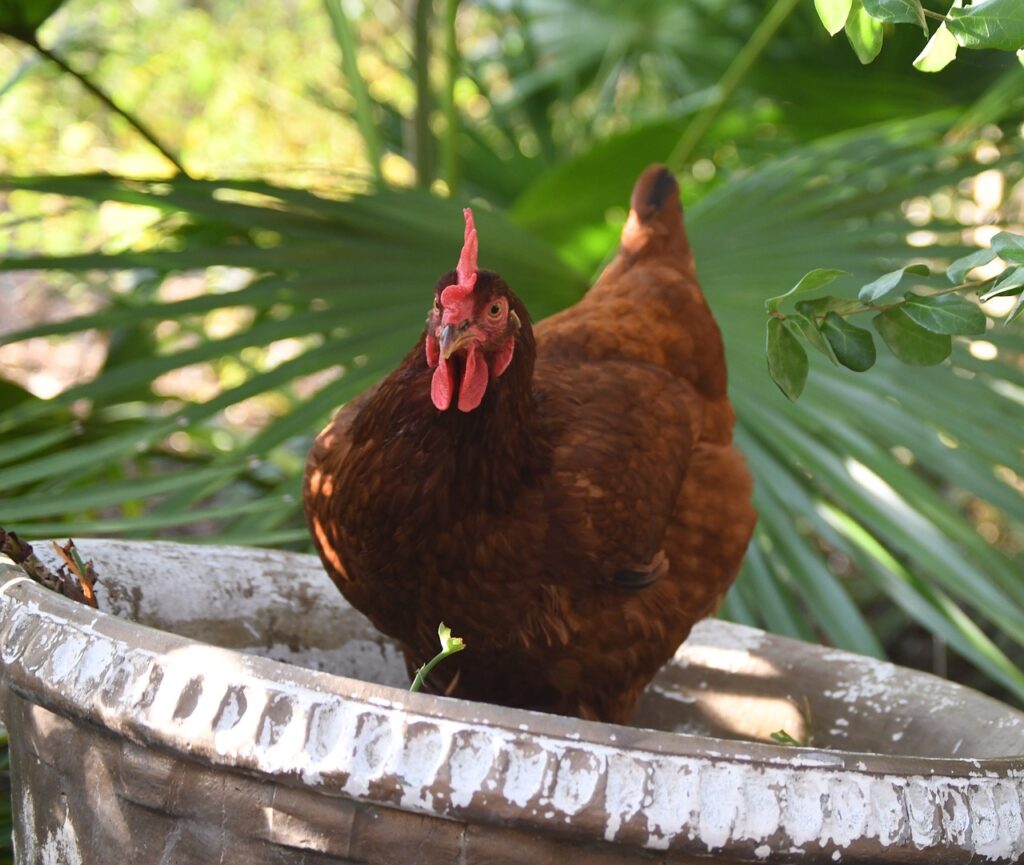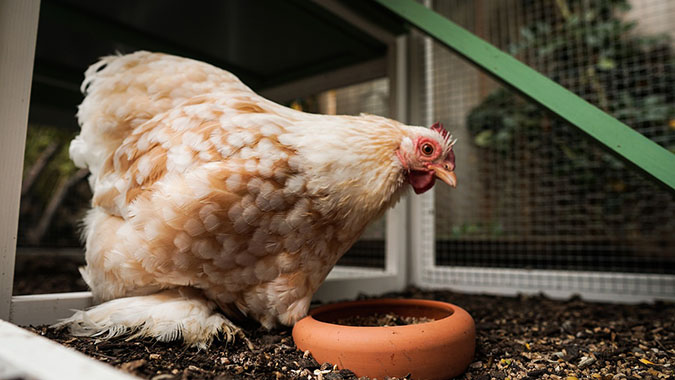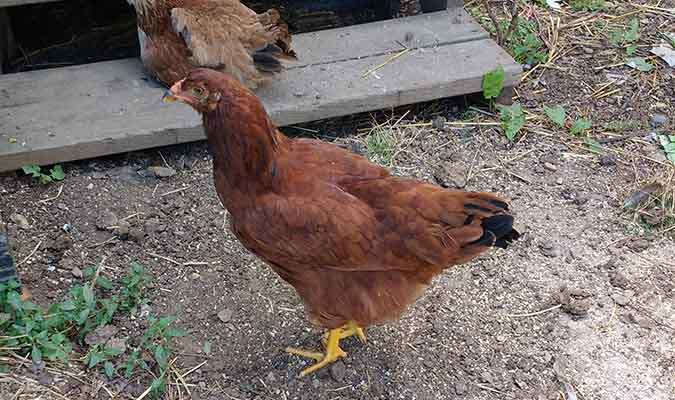The best chicken breeds for cold climates have the right weight, feathering, and comb size. Here are 13 cold-hardy breeds to consider.

13 Best Chicken Breeds for Cold Climates
Here on our homestead in North Carolina, we’ve had some crazy-cold weather in recent winters. In fact, some of our nights have been so cold that it had me rethinking my chicken breed choices.
You May Also Enjoy:
“5 Excellent Reasons To Keep Backyard Chickens”
“Using Game Cameras To Protect Your Backyard Chickens”
“Choose the Perfect Chicken Coop: 4 Essential Considerations”
Luckily, most of my ladies are pretty hardy to begin with. But my lightweight, giant-combed Lakenvelder rooster and my dear, sweet rooster Rasputin had me a bit worried. And as I discovered, when it came to Rasputin, I was right to be worried.
You can learn more about the plight of my poor frostbitten chicken, Rasputin, here.
Now, read on for some recommendations to help you choose chicken breeds that will come through the cold with flying colors!
When picking chickens for cold weather, there are 3 simple things to keep in mind: weight class, feathering, and comb size.
Let’s look at weight class first.
Best Chicken Breeds for Cold Climates by Weight Class

Choose chicken breeds that have a fair amount of fat. Heavier birds tend to have more cold tolerance than lean birds. In most climates, dual-purpose breeds that are good for egg and meat production are usually sufficient for cold temperatures just above single digits, and maybe even a little below, on the Fahrenheit scale.
Consider these breeds for winter-friendly fattiness:
- Plymouth Barred Rocks
- Black Australorps
- Rhode Island Reds
- Delawares
- Buff Orpingtons
- New Hampshire Reds
If you live in conditions where you also have warm summers to contend with, these breeds tend to have decent heat tolerance as long as they are given sufficient access to shade and lots of fresh, cool water.
Extra-Heavy Feathering Gives These Chickens More Cold Tolerance

For even more winter protection, choose chicken breeds that have extra-heavy feathering. The feathering gives a few more degrees’ worth of cold tolerance. However, in some conditions, feathery feet may actually be more at risk for frostbite if wet feathers ice over. So, in extreme conditions, take measures to keep your chicken’s feet feathers dry.
Consider these breeds for extra feathers:
- Cochins
- Favorelles
- Brahmas
4 Chicken Breeds With Smaller Comb Sizes
One of the biggest risks to chickens in cold weather is frostbite on their combs. In warmer temps, combs are actually a cooling device that helps regulate the rest of a chicken’s body temperature. This is why roosters, who often have more fat and more feathering, tend to have larger combs than hens. (Well, that, and because those great big combs are like flashing neon signs of virility and masculinity that help attract the beautiful ladies.)
You May Also Enjoy:
“Cold-Weather Chicken Care: 11 Quick Ideas to Improve Chicken Comfort”
Unfortunately, in wet, windy, and icy conditions, large combs are a liability. They are more prone to losing circulation from the cold and becoming frostbitten.
Choosing chickens with compact combs, such as pea or rose combs, can cut down on the risk of frostbite. Also, paying special attention to the condition of larger rooster combs in winter is important.

Consider these breeds for compact combs:
- Buckeyes
- Dominiques
- Wyandottes
- White Dorkings (Note: The Dorking breed may have either single or rose combs. If you are looking for cold-hardy combs, choose the White Dorking with a rose comb.)
The really wonderful things about all of the cold-hardy breeds above is that they are great egg layers, excellent backyard chickens, and happen to be beautiful to boot! So, you don’t have to compromise chicken cuteness, productivity, and good disposition, to also get great all-winter birds.
Regardless of which breed you choose, if you live in areas with potential cold conditions, you want to make sure you give your chickens a coop that offers sufficient protection from the elements, while also being well ventilated.
You May Also Enjoy:
“Why Switch From Chickens to Ducks?”
“Cheap, Cheep! 4 Novel Ways to Feed Chickens for (Almost) Free”
Additionally, you want to be prepared to offer your chickens some emergency cold-condition remedies if you have weather that’s more extreme than normal (as many of us did this past winter). You can read more about some easy ideas for increasing chicken comfort in winter here.
Also, remember the lessons learned from Rasputin, the frostbitten chicken. And make sure you have a plan for how to prevent and treat frostbite.
What Do You Think?
What are your favorite chicken breeds for cold climates, and why? Leave your thoughts in the comments below!
_______________
This is an updated version of an article that was originally published on February 24, 2018.

Tasha Greer is a regular contributor to The Grow Network and has cowritten several e-books with Marjory Wildcraft. You can follow her ABCs of Homesteading Series on the Mother Earth News homesteading blog and visit her personal blogs at reLuxe renderings and simplestead.com.
